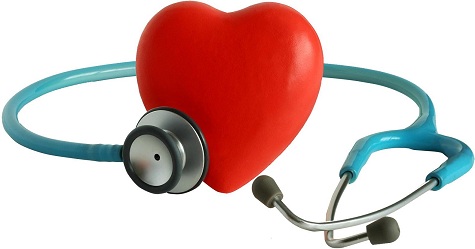Alternative Therapies
- Alternative Medicine
- Access Bars
- Acupressure
- Acupuncture
- Ancient Magnetism
- Angel Healing
- Ayurveda
- Bach Flower Remedies
- Breathwork
- Cosmetic Acupuncture
- Crystal Healing
- Cupping Therapy
- Emotional Freedom Technique (EFT)
- Ergonomics
- Fengshui
- Holistic Solutions
- Holy Fire Reiki
- Homeopathy
- Hypnotherapy
- Inner Child Therapy
- Jikiden Reiki
- Lama Fera
- Life Coaching
- Manual Therapy
- Meditation
- Melchizedek Method
- Motivational Counseling
- Mudra Healing
- Nakshatra Energies
- Naturopathy
- Neuro Linguistic Programming (NLP)
- Panchakarma (Ayurveda)
- Panchkarma Holistic Healing - Mind Control
- Past Life Regression
- Physiotherapy
- Pranic Healing
- Pyramids
- Quantum Jumping Meditation
- Quantum Touch Healing
- Reiki
- Rudraksh
- Silva Mind Control Method
- Sujok therapy
- Tarot
- Theta Healing
- Unani Medicine
- Yoga
Diseases & Conditions
- Acne & Pimples
- Allergies
- Arthritis
- Asthma
- Behavioural Disorders
- Dandruff
- Diabetes
- Emotional Problems
- Gallstones
- Gastritis
- Hairloss
- Heart Diseases
- Hormonal Problems
- Hypertension
- Immune Disorders
- Infections
- Infertility
- Jaundice
- Kidney Disorders
- Liver Disorders
- Menstrual Disorders
- Migraine
- Neck & Back Pain
- Obesity
- Osteoporosis
- Peptic Ulcer
- Prevention
- Prostate Problems
- Psoriasis
- Sexual Dysfunctions
- Sinusitis
- Sleep Disorders
- Skin Diseases
- Stress
- Thyroid Disorders
- Ulcerative Colitis
- Urinary Infections
General Wellness
Palpitation Treatment In New Jersey

Ms. Mukta Rastogi
Mukta Rastogi is a Life coach, Counsellor, Certified Hypnotherapist, Access Bars Practioner, Certified with Dr Brain Weiss in Past Life Regression, trained in Metaphor Therapy and Angel Card Reader. She is Proactive and dynamic spiritual healer.

The World Of Miraculousness with Mansi Narang Kakkar

Mansi Narang Kakkar is an Access Consciousness Bars N Facelift Facilitator And Practitioner, A Certified Pranic Healer, Talk to the Entities Practitioner, Body Process practitioner, Symphony of Possibilities Practitioner, Reiki Healer, A Psychic n a medium.


What are Palpitations?
Palpitation, a common problem, is a state in which the heart beats forcibly and, maybe, irregularly. It enables the person to become aware of the action of his heart. It is a distressing condition but is not always serious.
Palpitation is a condition that occurs when normally there is a disruption, or abnormalities in the heart beat. This abnormality in the heartbeats could be isolated as a single beat that is out of linesync, or it could be present as several irregular heartbeats which that continue over a period of time. If they do last for prolonged periods of time, it could cause you pain as well as muscle damage in the heart.
Palpitations after eating are common if you have been experiencing indigestion and gas. Anxiety and heart palpitations are often interconnected and this is due to the constriction of blood vessels and the reduced oxygen flow.
Each muscle in the heart is capable of producing electrical impulses. These electrical signals and impulses can pass over the electrical pathways which then generates a heartbeat. If the heart muscles are not performing optimally, the heartbeats are not regular.
Types of Palpitations
There are several different types of palpitations that one may experience on the reasons for heart palpitations.
Premature Atrial Contractions and Premature Ventricular Contractions: These kinds of contractions are usually asymptomatic and are caused when the atrium and the ventricles are not sending out the right kind of electrical impulses. This is usually associated with malfunctioning of the natural or synthetic pacemakers in the heart.
Supraventricular Tachycardia: The electrical system in the heart may begin to malfunction, causing the upper chamber of the heart to malfunction and cause irregular and abnormal heartbeats. Usually, these impulses cause the ventricles to beat extremely fast. Sometimes, the heart may beat 150 times a minute.
Atrial Fibrillation and Flutter: These kinds of palpitations occur when all the muscles of the heart take on the function of a pacemaker. The muscles start firing all over and the organized contractions cause fluttering of the heart and palpitations.
Ventricular Tachycardia and Fibrillation: This occurs when a person has a coronary heart disease. Due to the condition, the blood supply to the heart becomes very low and this causes palpitations. This is the severest form of palpitations and may cause the heart muscles to finally give in. Ultimately, this could cause death.
Symptoms for Palpitation
Thumping Feeling in the Chest, Pulse Rate Increases The main symptom of heart palpitation is a kind of 'thumping' feeling in the chest. The patient feels a real discomfort in the front of the chest. The pulse rate may become faster than normal. Other heart palpitations symptoms include feeling faint, dizziness, nausea, and chest pains. Heart palpitations with shortness of breath are usually the most common symptom of this condition. There may be a buildup of pressure in your chest along with loss of consciousness.
Causes for Palpitation
Anxiety Although palpitations do occur among other symptoms in serious heart disease, the vast majority of cases are due to anxiety and have no direct connection with heart disease whatsoever.Anxiety and heart palpitations causes dizziness in a person. These dizzy spells are often also accompanied by panic attacks and further bouts of anxiety.
Overful Stomach, Flatulence, Constipation and Excessive Smoking
Other causes contributing to this condition are an overful stomach, flatulence, and constipation. Excessive smoking may also give rise to this disorder. The causes of palpitations after eating include gassiness and flatulence. The heart muscles may contract abnormally due to the high amount of gases released into the body after eating. Palpitations after eating chocolate or sugar may be caused when there is a sudden spike in the blood sugar.
What Causes Heart Palpitations
There are many causes of palpitations and each cause may lead to a different kind of palpitation. If you have palpitations at night, it could be caused due to hormonal imbalances, especially those which are experienced during menopause.Menopause and heart palpitations are often associated with each other and there may be night sweats and hot flashes along with it experienced as well in such cases. Hormones are usually also responsible for heart palpitations during pregnancy as well. Some of the other causes of palpitations in men, women, children, and the elderly are caused due could be attributed to to medications, low blood oxygen levels, alcohol excess, smoking, stress and anxiety, and excessive levels of the thyroid hormone.
Hormonal Conditions
The causes of palpitations at night and the causes of palpitations during pregnancy are usually related to the excessive hormones in your body. Heart palpitations during pregnancy trimester in any of the trimesters are usually caused due to the increased thyroid hormones. The pregnancy hormones in your body may cause a range of symptoms, from palpitations to heartburn. Heart palpitations during pregnancy may be caused by thyroid imbalances as well.
Remedies for Palpitation
Palpitation treatment using Grapes
Grapes are one of the most effective home remedies for heart palpitation. The patient should take the juice of this fruit at frequent intervals. This will relieve the condition.
Palpitation treatment using Guava
The use of guava is another effective home remedy for palpitation of the heart. The patient should eat a ripe guava daily on an empty stomach. It is especially beneficial if this disorder caused by nervousness and anaemia.
Palpitation treatment using Snake Gourd Leaves
The leaves of snake gourd have been found beneficial in the treatment of palpitation of the heart. The juice of these leaves should be extracted and given in doses of one to two tablespoons thrice daily.
Palpitation treatment using Honey
Honey has proved valuable in overcoming this condition. Honey is considered to be an excellent food for the heart being easily digested and assimilated. The patient should take a glass of water, mixed with a tablespoon of honey and the juice of half a lemon, before going to bed.
Palpitation treatment using Indian Spikenard
The herb Indian spikenard is also beneficial in the treatment of palpitation of the heart. It stimulates the action of the heart. It should be taken in doses of two to three grams with the addition of a pinch of camphor and cinnamon. It can also be taken as an infusion in doses of 30 to 60 ml, three times a day.
Palpitation treatment using Aniseed and Dry Coriander
A mixture of powdered aniseed, dry coriander, and jaggery can also be used beneficially in the treatment of this condition. Equal quantities of each of these three substances should be powdered. About six grams of this mixed powder should be taken after each meal by the patient suffering from palpitation of the heart.
Cure for Heart Palpitations Using Peppermint Tea
You can get peppermint tea for yourself when you experience heart palpitations. Peppermint tea helps you get rid of excessive gas in your intestinal tract and keep your digestion healthy. This is one of the best remedies for what causes heart palpitations at night. This can also be a great remedy for what causes heart palpitations when lying down.
Meditation and Yoga
Since stress is considered one of the primary causes of heart palpitations, meditation and yoga can help you. Meditating every day can help you deal with the stress and anxiety that comes with every day routines.
Avoid Stimulants
It is also important to make sure that you do not consume a lot of stimulants, because these can cause palpitations. Stimulants also cause a drop in the amount of oxygen available for circulation in your body. This causes the heart muscles to function abnormally and therefore leads to arrhythmias and palpitations. Avoid caffeine, alcohol, chocolates, carbonated beverages, and tea, especially before you turn in at night.
Avoid Illegal Drugs
As much as illegal drugs may pull you towards them, avoid them because these can cause palpitations and a lot of other problems as well. Drink lots of water so that all toxins are flushed from your body and that your skin and your organs remain hydrated.
Hormone Replacement Therapy
For hormonal problems, natural remedies may not always be the right solution. Therefore, you may need to undergo hormone replacement therapy. You can have a natural replacement therapy or medical one. Vitamins A, C, and E are some of the other nutrients which can help you deal with hormonal fluctuations. Consume foods which are rich in all these nutrients. Eating a meal consisting of differently colored foods is one way to ensure that you get adequate nutrition.
Diet for Palpitation
Fresh Fruits, Raw or Lightly Cooked Vegetables
The patient suffering from palpitation of the heart should take a simple diet of natural foods, with emphasis on fresh fruits, and raw or lightly cooked vegetables. Avoid Tea, Coffee, Alcohol, Chocolate, Soft Drinks He should avoid tea, coffee, alcohol, chocolate, soft drinks, all white flour products, sugar, food colourings, chemical additives, white rice, and strong condiments.
Take Fruits, Milk, Steamed Vegetables, Wholewheat Chapatis and a Glass of Buttermilk etc
He should restrict his diet to three meals a day. He should take fruits, milk, and a handful of nuts or seeds for breakfast in the morning; steamed vegetables, wholewheat wheat tortilla and a glass of buttermilk for lunch in the afternoon; and fresh green vegetables salad, sprouts of alfalfa seeds and green gram, and cottage cheese or a glass of buttermilk for dinner.
Suggestions for Palpitation
Meditation, Relaxation, Swimming, Skipping, and Cycling The patient must learn the art of meditation and relaxation. Shavasana is ideal for this purpose. The patient should also undertake some form of active exercise such as brisk walks, swimming, skipping, and cycling.




